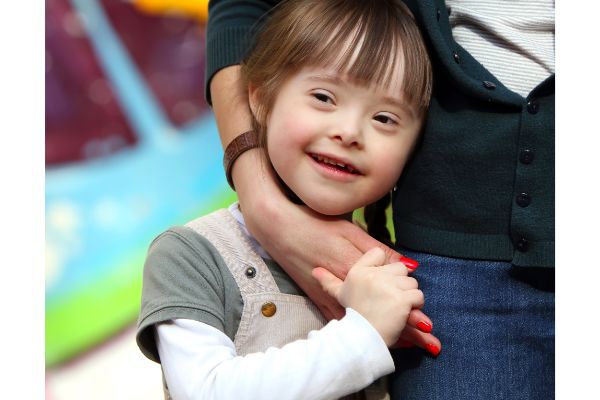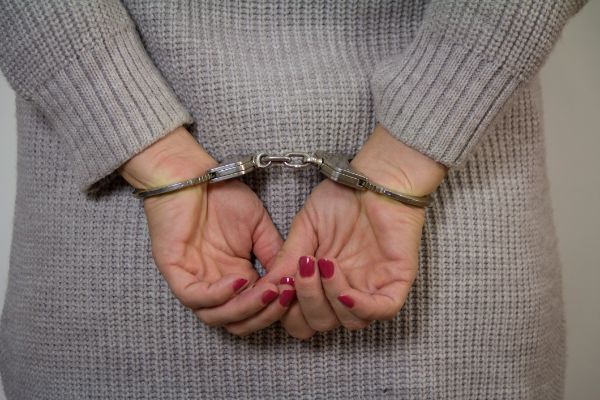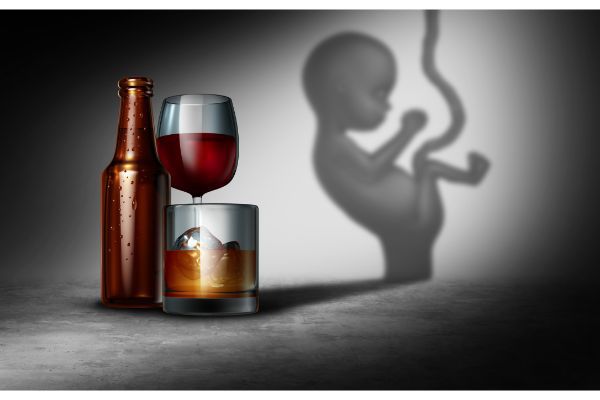|
When an individual experiencing a mental health crisis encounters police, the results can, unfortunately, be deadly. Untrained officers who are ill-equipped to handle these crises can unnecessarily shoot a person suffering from a mental illness. This happens in cities across the country. A new study out of the University of Texas has found that Austin, Texas, has the highest rate of shootings during mental health calls among 15 major cities.
Highest Rate of Shootings The Human Rights Clinic of the University of Texas School of Law and the Austin Community Law Center analyzed data and found that between 2010 and 2016, there were 24 people killed in police shootings. Of these shootings, at least a third of them involved confirmed cases of mental health issues. This is the highest rate when comparing the 15 largest cities in the country. Researchers also found 20 similar shootings where the individual survived. Those experiencing a mental health crisis in Austin face a greater risk of a bad encounter with police. It is clear that Austin falls short of properly training its police officers in crisis intervention and de-escalation techniques. When people call the police in Austin to help with a mental health crisis, there is no guarantee that the responding officer will know what to do. This was evident in the July 2019 shooting of Mauris DeSilva. The 46-year old was experiencing a mental breakdown when he eventually charged at police with a knife. An officer with mental health training had been dispatched but did not arrive on the scene in time due to dealing with another incident. Moving Forward The report brought to light the need for major changes in the Austin Police Department. The 2019-2020 Austin city budget includes increased funding for non-police responses to mental health calls. In addition, Austin police chief Brian Manley announced that Austin police would receive increased training on how to respond to mental health calls. Officers currently undergo 40 hours of training and will soon undergo 80 hours of training. The hope is that better-trained officers will have more positive encounters with individuals in the midst of mental health crises. If you or a loved one has a mental disability and has been arrested or convicted of a crime, you need an experienced criminal defense attorney on your side. Elizabeth Kelley specializes in representing individuals with mental disabilities. To schedule a consultation call (509) 991-7058. We all know that for many, the beach is a calm and relaxing place. There is a reason many people take coastal vacations to unwind. But does being on the coast really have an effect on your mental health? A new study out of England suggests that living on the coast may be the key to better mental health. Living close to the sea could have therapeutic benefits and greatly affect your mental well-being.
The Study The study out of the University of Exeter was one of the most comprehensive evaluations of a connection between coastal living and mental well-being. Researchers looked at mental health survey data of over 26,000 adults in England between 2008 and 2012. They compared the data of those living approximately 1 kilometer from the coast and those who lived 50 kilometers from the coast. Using a 12-item General Health Questionnaire, researchers were able to evaluate the mental well-being of survey participants. About one in six adults in England suffers from a mental health disorder. The data from the survey included information regarding socioeconomic status and health-related behaviors. The study noted that while anxiety and depression affect all socioeconomic statuses, individuals who are of lower status are at a greater risk of developing a mental health condition. The Findings Researchers found that living in towns and cities near the coast could considerably improve mental well-being, especially for those individuals of lower socioeconomic status. The study results support previous research that indicated that “blue spaces” are associated with better health and well-being. It also is in line with research demonstrating that living closer to natural environments can have an overall positive effect on mental health. The positive relationship between natural environments and mental health is stronger within more socioeconomically deprived groups. The hope is that research such as this will encourage people and governments to preserve the coastline and encourage the appropriate use of coastal space. Policymakers must ensure greater access to coastal spaces to maximize the benefits throughout the community. If you or a loved one has a mental disability and has been arrested or convicted of a crime, you need an experienced criminal defense attorney on your side. Elizabeth Kelley specializes in representing individuals with mental disabilities. To schedule a consultation call (509) 991-7058. According to a report from the Centers for Disease Control and Prevention (CDC), the number of children with developmental disabilities has increased significantly over recent years. A study found that one in six children, or 17.8% of children, had a least one developmental disability in 2017. In 2009, the figure was at 16.2%.
The Study The study examined data collected between 2009 and 2017 through the National Health Interview Survey. The survey is an in-person government poll that solicits information about different health-related topics from individuals across the country. Part of the survey asked parents if their children had one of ten different developmental disabilities. The data included 88,000 children aged 3 to 17. The study found that the prevalence of intellectual disability, autism, and attention-deficit hyperactivity disorder rose over the course of the survey. Reasons for the Spike There were some explanations for why there was a spike in children with a developmental disability. The National Health Interview Survey changed the wording of some of its questions regarding developmental disability, which may have had some impact on the responses. However, the increase in awareness and education about developmental disabilities seems to be a major contributing factor. There is a greater understanding of how these disabilities work, and more children are receiving the proper diagnoses. This was demonstrated by an increase in developmental disability diagnoses among boys, older children, children living in urban areas, and children with uneducated mothers. While in the past, many children with disabilities would go undiagnosed, there is now greater recognition of developmental disability. The overall increase in the prevalence of developmental disabilities is a significant change. This means that there are now more children in the United States who need the necessary services to help them function in the community. Communities will have to invest more in providing the appropriate supports and services that these children need. If you or a loved one has a mental disability and has been arrested or convicted of a crime, you need an experienced criminal defense attorney on your side. Elizabeth Kelley specializes in representing individuals with mental disabilities. To schedule a consultation call (509) 991-7058. More than 200 million people around the world are affected by an intellectual disability. Yet not much is known about the genetics or molecular pathways behind intellectual disability. Researchers recently discovered a new form of intellectual disability that is especially prevalent in countries where marriages between genetically related individuals are common. The hope is that this research will provide a better understanding of the underlying genetics involved in intellectual disability.
New Syndrome The study uncovered five individuals from two unrelated families in Saudi Arabia and Pakistan who suffer from the syndrome. All five individuals had the same symptoms, which included intellectual disability, developmental delays, speech loss, small stature, low muscle tone, and in some cases, aggression and seizures. Analysis of the patients' DNA showed that they shared mutations in gene IQSEC1. This was the first study to reveal that an IQSEC1 mutation could result in intellectual disability. Mutations in IQSEC2 and IQSEC3 have been previously implicated in intellectual disabilities. The researchers looked at fruit flies to determine whether the mutation was the cause of the intellectual disability and other symptoms. They eliminated the schizo gene in the fruit flies and replaced it with a functioning IQSEC1 gene and found that the flies behaved normally. When mutated IQSEC1 genes were placed in the flies, they found dead fruit fly embryos with severe neural defects. They found that variants in the gene produced nonfunctional IQSEC1 proteins. In addition, studies on mice showed that a deletion of the IQSEC1 protein resulted in defects in certain neural projections. All of the individuals with the disability came from families where marriages between relatives were common. The individuals inherited two defective copies of IQSEC1, one from each parent. The defective copies of IQSEC1 produced altered proteins in the patients. Further research must be done to uncover how prevalent this syndrome may be. If you or a loved one has a mental disability and has been arrested or convicted of a crime, you need an experienced criminal defense attorney on your side. Elizabeth Kelley specializes in representing individuals with mental disabilities. To schedule a consultation call (509) 991-7058. An investigation by television station KCCI in Des Moines found that most inmates in Iowa prisons have a mental illness. In the Iowa Correctional Institute for Women, 80% of the inmates have a mental illness.
Mental Illness The most commonly diagnosed mental illnesses among inmates include bipolar disorder, anxiety disorder, post-traumatic stress disorder, and substance abuse. Many of these women suffer from paranoia or hear voices in their heads. They believe that someone is going to harm them, and they believe everyone around them is their enemy. This is a difficult way to live, especially in prison. According to the director of the Iowa Department of Corrections, some inmates aren’t aware of their illness until they are screened by staff in prison. Many of the women have a history of violence and trauma that has never been properly addressed. These women have never had the treatment and assistance they needed to deal with their trauma. Some have turned to substance abuse as a form of self-medication. At the Iowa Correctional Institute for Women, meth addiction, violence, and trauma are the major contributing factors to mental illness. Treatment Many women with mental illness in prison continue to be denied the necessary treatment as prisons are often not adequately equipped to handle mental illness. Some individuals go to the mental health wing of the prison, while more serious cases are treated in the acute wing. While treatment is available, it does not always go far enough. Inmates with mental illness at the Iowa Correctional Institute for Women see a psychologist weekly in an effort to help them reenter society in a better condition than when they left it. Mentally ill offenders are still more than twice as likely to be arrested again and return to prison. These individuals are clearly not in a better position and require assistance and support outside of prison as well. If you or a loved one has a mental disability and has been arrested or convicted of a crime, you need an experienced criminal defense attorney on your side. Elizabeth Kelley specializes in representing individuals with mental disabilities. To schedule a consultation call (509) 991-7058. In an effort to reduce deadly encounters between the New York Police Department and people experiencing psychiatric crises, trained mental health workers will start joining police in responding to 911 calls. This comes as part of a $37 million plan announced by Mayor Bill de Blasio in October. The changes to the department come in response to the fatal shooting of Saheed Vassell in April of 2018. Officers shot Vassell after believing the pipe he was waving was a gun. Many believe that Vassell’s death could have been prevented if officers had been trained on how to handle his mental illness.
High Need This new initiative will focus on two “high-need” precincts in the city, the 25th in Manhattan’s East Harlem and the 47th in the north Bronx. These precincts will get "Co-Response Teams," which will consist of a pair of police officers and a counselor. The teams will be used to replace the policy of currently sending officers or paramedics to a call involving a mental health crisis.Many officers are not appropriately trained on how to deal with individuals in psychiatric crisis. Having someone available with specialized training can help reduce the need for force and may prevent arrests. Behavioral Health Unit In addition, the NYPD will create a Behavioral Health Unit, which will help provide much-needed training to the department's Emergency Services Unit. The trainers will consist of newly hired Health Department workers and individuals who have previously struggled with mental health issues. Change in Terminology The acronym "EDP," short for "emotionally disturbed person," will also be phased out. This is part of an effort by the NYPD to take a more sensitive approach toward handling individuals with mental illness. EDPs will now be referred to as "mental health calls." This comes in the wake of the fact that the number of 911 calls in the city involving individuals with mental illness has almost doubled since 2009. If you or a loved one has a mental disability and has been arrested or convicted of a crime, you need an experienced criminal defense attorney on your side. Elizabeth Kelley specializes in representing individuals with mental disabilities. To schedule a consultation call (509) 991-7058. When a woman drinks during pregnancy, the effect on the baby can be devastating. Fetal Alcohol Spectrum Disorders (FASD) are a group of conditions that results from the consumption of alcohol during pregnancy.
Causes of FASD When consumed during pregnancy, alcohol passes from the mother to the baby through the umbilical cord. There is no safe time to drink during pregnancy, and any amount of alcohol can be dangerous to the baby. Alcohol consumption can cause problems even before a woman knows that she's pregnant. FASD is preventable if a woman does not drink during pregnancy. Signs and Symptoms of FASD The term FASD refers to a range of effects that can occur when a woman drinks during pregnancy. FASD can affect people in different ways and can range from mild to severe. An individual with FASD might have:
There are four main types of FASD, and each has its own effects.
If you or a loved one has a mental disability and has been arrested or convicted of a crime, you need an experienced criminal defense attorney on your side. Elizabeth Kelley specializes in representing individuals with mental disabilities. To schedule a consultation call (509) 991-7058. Norway may serve as an example to the United States on how best to balance government spending between criminal justice and mental health services. Norway takes a more rehabilitative approach to criminal justice and, as a result, has a much lower rate of recidivism. The country has been recognized internationally for its rehabilitative success, while the criminal justice system in the United States remains overburdened and ill-equipped to handle the large percentage of mentally ill individuals.
Spending Per Prisoner On average, Norway spends $129,000 per prisoner. The federal prison system in the US spends $36,000. While some of this spending is the result of the high cost of living in Norway, it can serve as an example to the US. The US often ends up spending considerably more on prisoners due to the high rate of recidivism. Meanwhile, Norway has a low recidivism rate due to the fact that it offers more resources for prisoners and has better support systems once prisoners are released. Mental Health Services Norway also has an innovative approach to mental health crises in the community. In the coastal city of Bergen, mental health ambulances respond to crisis calls instead of police. The ambulances are staffed with psychiatric nurses and a driver with mental health training. If police are also on the scene, the mental health professionals take the lead. This process results in fewer arrests of individuals who need mental health assistance. In the US, many mentally ill people are placed in the criminal justice system and in some cases, become a burden on the overcrowded prison system. In addition, while, much like the US, Norway has shut down many of its psychiatric hospitals, the country still has three times more hospital beds per capita than the US. Norway also has a highly developed system of outpatient treatment and social supports to help individuals with mental illness live in the community. Mental health consumes 12% of Norway’s total health spending while the US spends 7% of its healthcare money on mental health services. Decreased access to mental health services results in many individuals going to jail who don't belong there. The US has focused more government spending on the criminal justice system than on adequate mental health care. As a result, many jails and prisons have become de facto mental health facilities. Norway has chosen to focus on addressing mental health issues and as a result, has had success with rehabilitating individuals with mental illness. If you or a loved one has a mental disability and has been arrested or convicted of a crime, you need an experienced criminal defense attorney on your side. Elizabeth Kelley specializes in representing individuals with mental disabilities. To schedule a consultation call (509) 991-7058. In October 2019, a new mental health hotline debuted in California after receiving support and funding from the state. The hotline allows residents in need of non-emergency help to call or instant message someone for assistance.
Peer-Run Warm Line The hotline is known as the California Peer-Run Warm Line and can be reached at 1-855-7415. The line is currently staffed most of the day. It is called a "warm" line because the hope is that it can provide the help needed to prevent a situation from needing a "hotline." The line will be staffed Monday through Friday from 7 a.m.-11 p.m., Saturday 7 a.m. – 3 p.m. and Sunday 7 a.m. – 9 p.m. The hope is that the warm line will be staffed 24/7 by the end of the year. The hotline expects to handle about 25,000 calls per year. The city of San Francisco has operated a similar service since 2014 with some success. The goal of the hotline is to focus on the emotional wellness of the community to help support people who are not in crisis but who still need support. The hotline will also help callers locate more permanent assistance in the community. Supporters are hopeful that it will become an important resource for the community and will help prevent the need for expensive crisis-based interventions like hospital stays. This is especially important in a state where there are fewer acute care psychiatric facilities. The hotline will provide accessible, relevant, nonjudgmental peer support to those who reach out for assistance. It will help provide a human connection so that someone can avoid reaching a crisis point. The line, however, will not be a crisis hotline. The focus will be on preventing a crisis, not on helping someone in the midst of a crisis. Those callers who need that level of support will be referred to crisis lines and suicide hotlines as necessary. If you or a loved one has a mental disability and has been arrested or convicted of a crime, you need an experienced criminal defense attorney on your side. Elizabeth Kelley specializes in representing individuals with mental disabilities. To schedule a consultation call (509) 991-7058. |
Details
Archives
March 2024
Categories |









 RSS Feed
RSS Feed